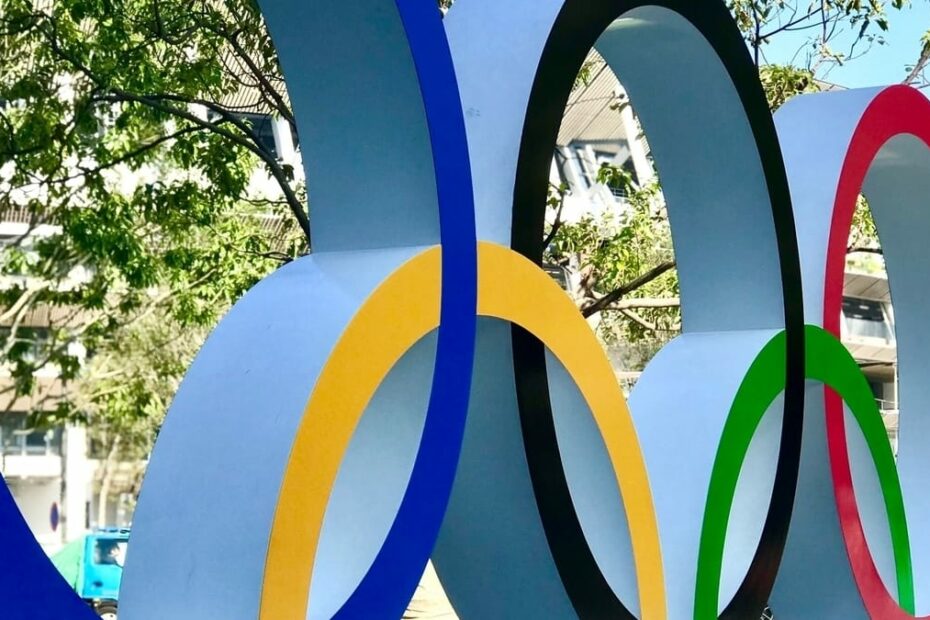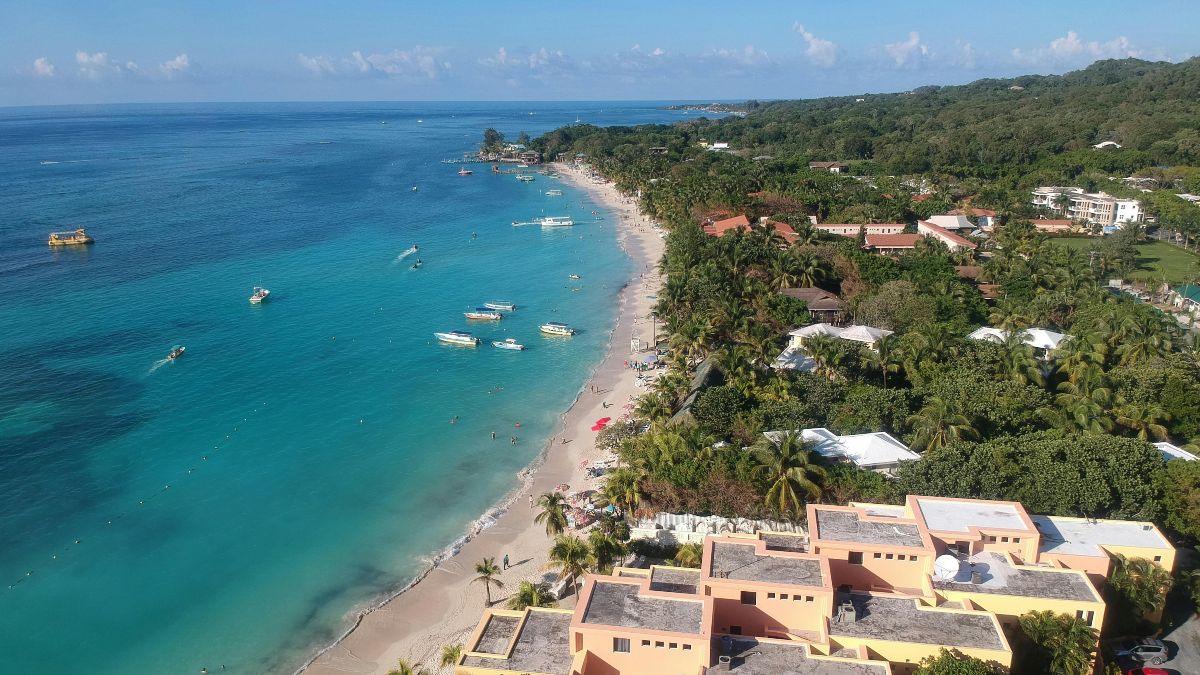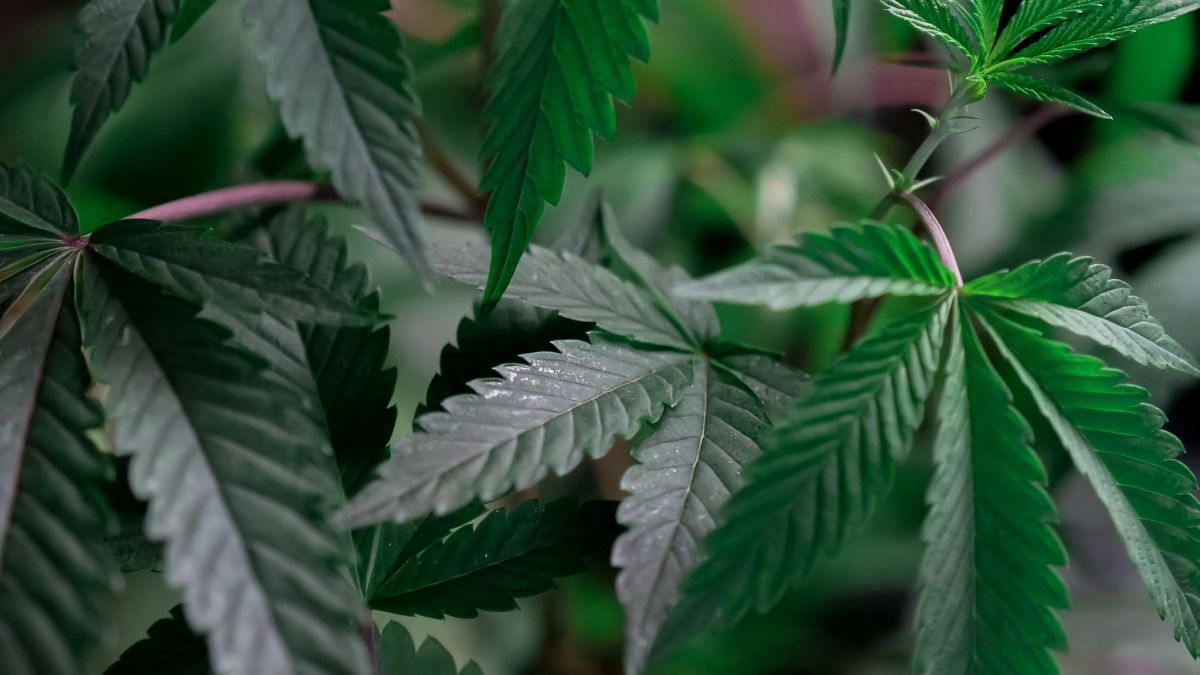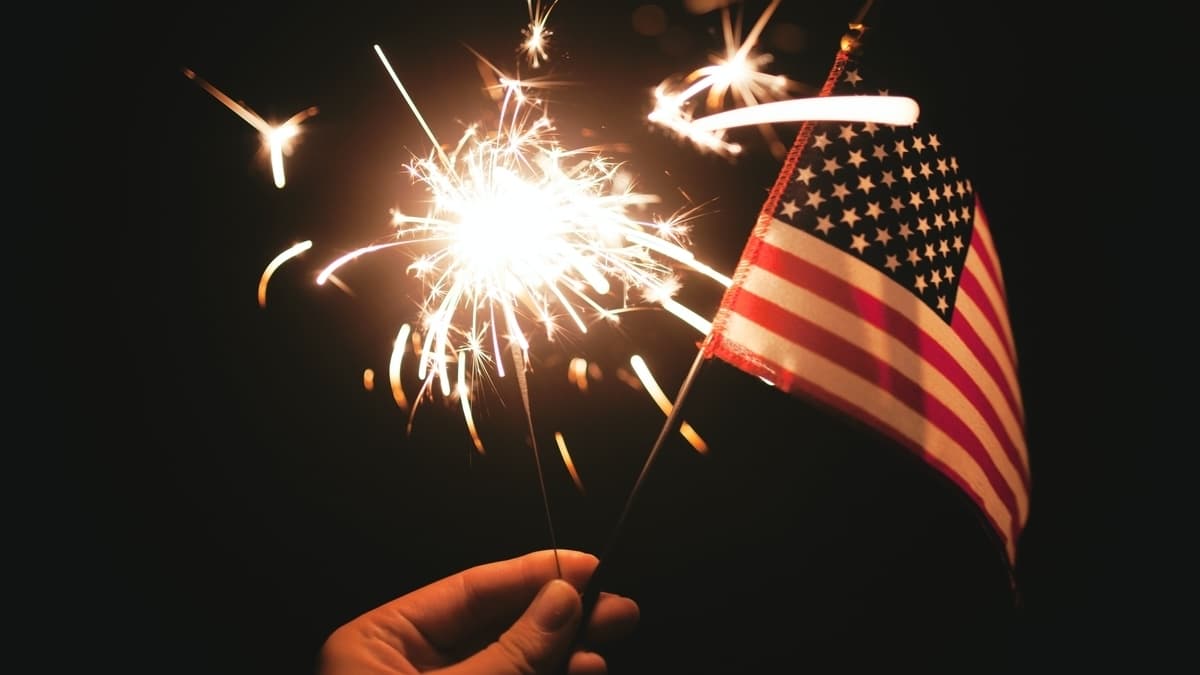The 2024 Paris Olympic Games are about to begin. While we wait for the action to start, we figured it would be a great idea to pay homage to the athletes representing Central America at the Olympics. Enjoy our guide to your Central America Olympic athletes.
2024 has been a great summer of sport. We’ve had the Euros in Germany, Copa America in the United States, and now it’s time for the big one taking place in France. The XXXIII Olympiad also known as Paris 2024 (with the surfing section taking place in Tahiti (which I feel is a little weird when France has some great surfing on the Bay of Biscay, but whatever) starts this week on July 26.
I know the Olympics come in for well-deserved criticism. Hosting the Olympics requires massive investments in infrastructure, which costs a fortune and rarely pays for itself, leaving cities stuck in debt with white elephants of underused facilities. Back in the day, cities jostled for the honor of hosting the Olympics, but those days are gone. There’s also an unmistakable whiff of corruption around the Olympics and the host city bidding processes and the corporate feel of it and everything. But here’s the thing. The sports are still wonderful.
Central America’s Olympics Athletes
Bottom line is the Olympics are the pinnacle of any athletic career, especially in sports that are largely underfunded and little-watched. (The little-watched thing is also great from a spectators point of view. I love how, for two weeks every four years, we all become fans of ping pong, fencing, and hammer throwing. It’s glorious.)
Central America is a collection of small countries with small populations and not much money. That means the region will never see many Olympic medals. Since Central America’s been participating in the Olympics, the region has won eight medals in total (Costa Rica four, Panama three, and Guatemala one). That doesn’t make the effort any less worthy, though.
In this article we want to honor Central America Olympic athletes competing in Paris (and Tahiti) by naming each one individually. There are 49 athletes from all seven countries competing in the Olympics this year. Let’s meet them:
Belize
Belize is Central America’s least populated country. It first competed in the Olympics in the 1968 Mexico City Games as British Honduras (and again as British Honduras in Munich ’72). From Montreal ’76 onward, Belize went to the Olympics as a fully-independent country and has competed in every one apart from Moscow ’80 when it joined the U.S. boycott that year.
This year, Belize has one athlete competing in the Olympics:
Track (Running)
Shaun Gill (Athletics: Men’s 100m): Shaun Gill made history as the first Belizean sprinter to compete in the 100 meters at the Olympics. Though he didn’t advance past the preliminary rounds in Tokyo 2020, clocking in at 10.88 seconds, his participation alone was a monumental achievement for Belizean athletics.
🎉 Exciting news! 🇧🇿 Shaun Gill has been selected to represent Belize at the 2024 Olympic Games in Paris! 🏃♂️🔥 Join us in congratulating Shaun for this incredible achievement. We’re beyond proud and can’t wait to cheer you on! 🌟🥇 #TeamBelize #Paris2025 please note he is our… pic.twitter.com/yHJAyzLXvf
— Honourable Andy Wigmore JPs (@andywigmore) July 22, 2024
Costa Rica
Costa Rica is Central America’s most successful Olympic country, with four medals under its belt. It first competed at Berlin 1936 but it didn’t win any medals until Seoul ’88, when swimmer Silvia Poll won silver in the Women’s 200 m Freestyle. Her sister, Claudia went on to win Central America’s first ever gold medal at Atlanta ’96, also in the Women’s 200 m Freestyle swimming event.
Claudia also won bronze in Sydney 2000 in both the 200m and 400m Women’s Freestyle. Between them, the two sisters have won all Costa Rica’s Olympic medals and they’re national heroes.
Below are the six Tico athletes competing in Paris right to join the Poll sisters in Costa Rica’s medal count:
Cycling
Milagro Mena Solano (Women’s Road Race): Milagro Mena Solano competed in the 2016 Rio Olympics, and was the first Costa Rican cyclist to enter and complete the prestigious Giro d’Italia Donne in 2022. Follow her on Instagram.
Judo
Sebastian Sancho (Men’s -60 kg): 25-year-old Sebastian Sancho ranked 33rd at last year’s IJF World Championships in Doha. This is his first Olympics. Follow him on Instagram.
Surfing
Brisa Hennessy (Women’s Shortboard): Born into a surfing family, Brisa Hennessy grew up in Costa Rica, Hawaii, and Fiji. She represented Costa Rica in the inaugural Olympic surfing competition during the Tokyo Games in 2021, where she finished 5th, the best Costa Rican Olympic-placing since the days of the Poll sisters. Follow her on Instagram.
Swimming
Alondra Ortiz (Women’s 200m Butterfly): 21-year-old Alondra Ortiz will be competing in her first Olympics in Paris 2024. Follow her on Instagram.
Alberto Vega (Men’s 400m Freestyle): At just 19, Alberto Vega is the youngest Tico competing in Paris. Follow him on Instagram.
Track (Running)
Gerald Drummond (Men’s 400m Hurdles): Gerald Drummond made history as the first athlete from his country to compete in the 400m hurdles at the Tokyo Olympic Games in 2021. He comes from Tico sporting royalty with both his father and uncle playing for Costa Rican national football team in the 90s and 00s. Follow him on Instagram.
View this post on Instagram
El Salvador
El Salvador competed in its first Olympics in Mexico City 1968. It went to Munich ’72 and then skipped Montreal ’76 and Moscow ’80, the latter as part of the U.S. boycott. Since Los Angeles ’84, it’s been at every Games.
Meet the eight Salvadoran Olympians for Paris 2024:
Archery
Oscar Ticas (Men’s Individual): Oscar Ticas made his international debut at the 2006 World Cup. He has competed in multiple World Championships, with his best performance being 33rd place in 2011. Recently, he earned a bronze medal at the 2024 South American Championships. At 37, Ticas is the oldest member of the Salvadoran Olympic team. Follow him on Instagram.
Badminton
Uriel Canjura (Men’s Singles): Uriel Canjura is set to become the first badminton player from El Salvador to compete in the Olympic Games. A bronze medallist at the 2023 Pan American Games, he also reached the Round of 16 at the 2023 World Championships. He started playing badminton at age nine, introduced by his stepfather. Follow him on Instagram.
Judo
Jairo Moreno (Men’s -60 kg): Jairo Moreno made his world championship debut in 2024. He is a four-time Pan American Open medallist, securing gold in Cordoba (2023) and Lima (2024). Trained by his father, Miguel, himself a former Olympian, Jairo started judo at six. Currently, he is studying psychology at Universidad Nacional de El Salvador. Follow him on TikTok.
Sailing
Enrique Arathoon (Men’s Dinghy): Enrique Arathoon, set to compete in his third Olympic Games at Paris 2024, has represented El Salvador in sailing since 2010. He finished 24th at Rio 2016 and 23rd at Tokyo 2020. An International Business graduate from the College of Charleston, he first took up sailing in 1998.
Shooting
Israel Gutierrez (Men’s 10m Air Rifle and Men’s 50m Rifle 3 Positions): Israel Gutierrez, making his Olympic debut at Paris 2024, is a gold medallist in the 50m rifle 3 positions at the 2023 Central American and Caribbean Games. He also won two golds at the 2023 Ibero-American Championships. Gutierrez is studying Legal Science at the University of El Salvador.
Surfing
Bryan Perez (Men’s Shortboard): Bryan Perez, known as the “Prince of Punta Roca,” will make his Olympic debut at Paris 2024. He has competed in the ISA World Surfing Games since 2018, with his best finish being 13th in 2021. Perez won bronze at the 2019 Pan American Games. Starting surfing at age nine, he credits the sport for steering him away from gang life. Follow him on Instagram.
Swimming
Nixon Hernandez (Men’s 100m Freestyle): Nixon Hernandez competed in the 2018 FINA World Swimming Championships and the 2019 World Aquatics Championships. He finished 74th in the men’s 50-meter freestyle and 84th in the men’s 100-meter freestyle at the 2019 championships. Follow him on Instagram.
Celina Márquez (Women’s 100m Backstroke): Celina Márquez represented El Salvador at the Paris 2020 Summer Olympics and was a flag bearer at the opening ceremony. In college, she swam for both the Houston Christian Huskies and the Nova Southeastern Sharks. Follow her on Instagram.
View this post on Instagram
Guatemala
Guatemala has by far the biggest delegation of athletes competing in Paris 2024. The country first competed at Helsinki 1952, but missed 1956, 1960, and 1964. It’s been ever-present ever since, though, and is the only Central American country outside of Costa Rica and Panama to win an Olympic medal.
That happened at London 2012 when Erick Barrondo won silver in the Men’s 20km Walk. Erick is back competing in Paris, hoping for another medal for his country. Alongside him are 15 other athletes:
Badminton
Kevin Cordón (Men’s Singles): Kevin Cordón will compete in his fifth Olympic Games at Paris 2024. Cordon finished fourth in the men’s singles at Tokyo 2020. He has won gold at the Pan American Championships five times and was Guatemala’s flagbearer at the 2008 Beijing Olympics. Follow him on Instagram.
Judo
Jacqueline Solis (Women’s -48 kg): Jacqueline Solis reached 9th place at the 2024 IJF World Championships in Abu Dhabi. She won silver at the 2009 Pan American Championships and gold at the 2021 Pan American Open. She began judo in 2004 and is known for her signature move, sasae tsuri komi ashi. Follow her on Instagram.
Modern Pentathlon
Andres Fernández (Men’s Pentathlon): Andrés Fernández qualified for the Paris 2024 Olympics with a strong performance at the 2023 Pan American Games. He also won a silver medal in the mixed relay at the 2023 Central American and Caribbean Games and has competed in multiple international events. Follow him on Instagram.
Ana (Sophie) Hernandez (Women’s Pentathlon): Ana Hernandez earned a bronze medal at the 2023 Pan American Games, becoming the first Guatemalan woman to win an individual medal in this event. Hernandez’s career highlights include a top finish of 3rd in the Mixed Team Relay at the 2021 World Cup Final and a bronze medal in the women’s team relay at the 2018 World Championships. Follow her on Instagram.
Sailing
Juan Maegli (Men’s Dinghy): A seasoned Olympian, Juan Maegli‘s saling career spans five Olympic Games. His best finish came in Rio 2016, where he placed 8th in the Men’s One Person Dinghy. Maegli also achieved 9th place at the London 2012 Olympics and 19th in Tokyo 2020. Known for his passion for extreme sports, Maegli is an avid kitesurfer, windsurfer, and mountain biker. Follow him on Instagram.
Shooting
Sebastian Bermudez (Men’s Skeet): Sebastian Bermudez secured a quota place for Paris 2024 by winning gold at the Championship of Americas in Santo Domingo. Bermudez also clinched gold in the men’s skeet team event and bronze at the 2022 Central American and Caribbean Games.
Jean Pierre Brol (Men’s Trap): Jean Pierre Brol debuted at the London 2012 Olympics and won gold at the 2023 Pan American Games. He has also earned medals at the World Championships and World Cups.
Adriana Ruano (Women’s Trap): Adriana Ruano made her Olympic debut at Tokyo 2020. After transitioning from artistic gymnastics due to a spinal injury, Ruano has excelled in shooting, winning gold at the 2023 Pan American Games. She is a sports nutritionist with degrees from the University of the Valley of Guatemala and Francisco Marroquin University. Follow her on Instagram.
Ana Waleska Soto (Women’s trap): Ana Waleska Soto is another trap shooter returning to the Olympics after debuting at Tokyo 2020. Her sporting journey began with softball, where she represented Guatemala and won a bronze medal at the 2010 Central American and Caribbean Games. Transitioning to shooting in 2004, Soto has achieved significant success, including winning gold in trap at the 2024 Championship of the Americas. She also earned silver medals at the 2023 Pan American Games and the Central American and Caribbean Games. Follow her on Instagram
Swimming
Erick Gordillo (Men’s 200m Individual Medley): 24-year-old Erick Gordillo is one Guatemala’s top swimming athletes. He has excelled in international competitions, notably winning gold medals in both the Men’s 200m and 400m individual medleys at the 2023 Central American and Caribbean Games. Follow him on Instagram.
Lucero Mejia (Women’s 100m Backstroke): At just 16, Lucero Mejia is the youngest member of Guatemala’s Olympic team. Follow her on Instagram.
Track (Running)
Mariandree Chacon (Women’s 100m): Mariandree Chacon is 19 and studies at Jacksonville University in Florida. This is her first Olympics. Follow her on Instagram.
Alberto Gonzalez (Men’s Marathon): Alberto Gonzalez first gained recognition at the 2016 Central American Championships, earning bronze in both the 5000m and 10,000m races. He won gold in the half marathon at the 2023 Central American and Caribbean Games, and was named Guatemalan Sportsperson of the Year for that year. Follow him on Instagram.
Luis Grijalva (Men’s 5000m): Luis Grijalva made his Olympic debut at Tokyo 2020, finishing 12th. Sine then, he’s achieved notable results at the World Championships, placing fourth in the 5000m in both 2022 and 2023. He graduated in 2021 with a Bachelor’s degree in Communication and Media Studies from Northern Arizona University. Follow him on Instagram
Walking
Erick Barrondo (Men’s 20 km Race Walk): Part of Guatemala’s famous Barrondo race walking family, Erick Barrondo specializes in the 20 km and 50 km walk events. He won a silver medal in the Men’s 20 km race walk at the London 2012 Summer Olympics, marking Guatemala’s first and only Olympic medal to date. Follow him on Instagram.
José Barrondo (Men’s 20 km Race Walk): José Barrondo made his Olympic debut at Tokyo 2020, joining the family legacy of race walking Olympians. His cousin, Erick Barrondo, is a notable race walker and Guatemala’s first Olympic medallist. He is coached by Julio Urias and studied Sports Science and Technology at Galileo University.Follow him on Instagram.
View this post on Instagram
Honduras
Honduras first competed in the Olympics in Mexico City 1968. They didn’t go to Munich 1972 and boycotted Moscow ’80. Outside of that, they’ve competed in every games since. Below are the four Honduran Olympians for Paris 2024:
Swimming
Julimar Avila (Women’s 200m Freestyle): Born in Boston, Julimar Avila represented Honduras in the Women’s 200m Butterfly in the 2020 Tokyo Olympics where she finished fourth. Follow her on Instagram.
Julio Horrego (Men’s 200m Breaststroke): Julio Horrego made his Olympic debut at Tokyo 2020, competing in the 100m and 200m breaststroke events. At the 2023 Central American and Caribbean Games, he earned three bronze medals in the 50m, 100m, and 200m breaststroke. Horrego carried his country’s flag at the Tokyo Opening Ceremony. He studies Sport Management at Florida State University. Follow him on Instagram.
Track (Running)
Melique Garcia (Men’s 100m): Melique Garcia qualified to run for Honduras in the 2020 Olympics but couldn’t travel due to passport issues. This time round, he’s back and ready to race for his country. Follow him on Instagram.
Wrestling
Kevin Mejia (Men’s Greco-Roman 97 kg): Kevin Mejía won a silver medal at the 2015 Pan American Games and earned two bronze medals at the 2014 Central American and Caribbean Games. He also secured two gold medals at the 2013 Central American Sports Games and silver at the 2013 Pan American Championship.
View this post on Instagram
Nicaragua
Nicaragua is one of Central America’s newer participants at the Olympics, only sending a team for the first time in the Mexico City ’68 Games. Since then, it’s competed in all Olympics apart from Seoul ’88 when it was unable to send a team because of financial issues. Nicaragua’s biggest Olympic success was its fourth-place finish – just missing out on a bronze – for baseball in Atlanta ’96.
Here are Nicaragua’s seven Paris Olympians:
Judo
Izayana Marenco (Women’s +78 kg): Isayana Marenco competed in the Women’s +78 kg category at the Tokyo 2020 Olympics, finishing 17th. She has been recognized as the best female judo athlete in Nicaragua and Central America for four consecutive years. Notably, she was the first Nicaraguan woman to ever qualify for the Olympics. Follow her on Instagram.
Rowing
Evidelia Gonzalez (Women’s single sculls): Evidelia Gonzalez competed in the Women’s Single Sculls at the Tokyo 2020 Olympics, finishing 27th. She made history as one of the first Nicaraguan rowers to compete in the Olympics, alongside her cousin, Felix Potoy. Gonzalez began rowing in 2013 and has represented Nicaragua with her siblings, Ana and Vicente, who are also rowers. She holds a Bachelor’s degree in Physical Education from the National Autonomous University of Nicaragua.
Shooting
Mariel Jose Lopez (Women’s 10m Air Rifle): Mariel Jose Lopez will make her Olympic debut at Paris 2024 after earning a spot through the IOC’s Tripartite Commission Universality Places. Lopez began shooting in 2016, inspired by friends, and has since achieved notable results, including a gold medal in the 10m air rifle at the 2022 Central American and Caribbean Shooting Championship. She also competed at the 2023 Pan American Games, finishing 22nd in the 50m rifle 3 positions and 23rd in the 10m air rifle.
Surfing
Candelaria Resano (Women’s Shortboard): Candelaria Resano is the first Nicaraguan to compete in surfing at the Olympics. She has consistently performed well at the ISA World Surfing Games, with her best result being 13th place in 2023. Raised in the surf community of Popoyo, Nicaragua, she grew up riding waves and has been influenced by her surfing family. Her father, Manuel, is a renowned big wave surfer from Argentina. Follow her on Instagram.
Swimming
Gerald Hernandez (Men’s 200m Butterfly): Gerald Hernandez is a 19-year-old up-and-coming swimmer competing in his first Olympics.
Maria Schutzmeier (Women’s 100m Butterfly): Maria Schutzmeier competed in the Women’s 100m Freestyle at the Tokyo 2020 Olympics, finishing 43rd. She studied Bioengineering at the Technical University of Dortmund and trains at the Federal High Performance Training Centre in Germany. Notably, she was named Female Swimmer of the Year by the Nicaraguan Swimming Federation in 2020.
Track (Running)
Maria Carmonia (Women’s 100m): Maria Carmonia is a 25-year-old runner competing in her first Olympics.
View this post on Instagram
Panama
Panama was the first Central American country to compete in the Olympics (Amsterdam 1928) and the first to win any medals. Sprinter Lloyd La Beach won two silvers at the London 1948 Games, in the Men’s 100 and 200 meters events. Then in Beijing 2008, long jumper Irving Saladino took home Panama’s first ever gold medal. This year, the following eight Olympic athletes hope to win more medals for Panama:
Boxing
Atheyna Bylon (Women’s 75 kg): Atheyna Bylon made her Olympic debut in Rio 2016 and placed 5th in the women’s 75kg category at Tokyo 2020. She won silver at the 2023 Pan American Games in Santiago. Bylon is noted for being the first Panamanian female boxer to win a world title, capturing gold in the welterweight division in 2014 and later earning silver in 2022. Besides her boxing career, she is a police officer and was Panama’s flag bearer at the Tokyo 2020 Opening Ceremony. Follow her on Instagram.
Cycling
Franklin Archibol (Men’s Road Race): Franklin Archibol made his World Championships debut in 2021, finishing 44th in the Men’s Individual Time Trial. Known as the “Chiricano Eagle,” Archibold debuted at the 2018 Circuit des Ardennes International, where he placed 15th. Archibol is set to make his Olympic debut in Paris 2024. Follow him on Instagram.
Gymnastics
Hillary Heron (Women’s Artistic Gymnastics): Hillary Heron began gymnastics at age four after being inspired by the Beijing 2008 Olympics. Training under Carlos Gil and Yaremi Vazquez, she practices six days a week and aims to excel at Paris 2024. Heron has also made history as the first Panamanian gymnast to win a World Cup medal and is recognized for performing the ‘Biles I’ acrobatic skill. Follow her on Instagram.
Judo
Kristine Jiménez (Women’s -57 kg): Kristine Jimenez competed in the Women’s -52 kg category at the Tokyo 2020 Olympics, finishing 17th. She achieved a notable ninth place in the Women’s -57 kg category at the 2024 IJF World Championships in Abu Dhabi. Starting judo at age 11, Jimenez has trained with her husband and coach, Adonis Diaz, and at the Ki-itsu-sai National Training Center in Florida. Follow her on Instagram.
Swimming
Bernhard Christianson (Men’s 200m Breaststroke): Bernhard Christianson competed in the Men’s 200m Breaststroke and 200m Individual Medley at the Tokyo 2020 Olympics, placing 29th and 40th respectively. Christianson made his international debut at the 2019 Pan American Games and is currently studying Finance at the University of Notre Dame while competing for the university swim team. Born to a Panamanian mother and a US father, he holds dual citizenship and began swimming at age eight. Follow him on Instagram.
Emily Santos (Women’s 100m Breaststroke): Emily Santos made her Olympic debut at the Tokyo 2020 Games, finishing 35th in the Women’s 100m Breaststroke. She began swimming at age five, transitioning from triathlon to focus on swimming after encouragement from her mother and a coach. Santos will further her education and training at Virginia Tech after the Paris 2024 Olympics. Follow her on Instagram.
Track (Running)
Arturo Deliser (Men’s 100m): Arturo Deliser competed in the 100 meters at the 2014 Summer Youth Olympics in Nanjing, China, and won both the 100 and 200 meters at the 2012 South American Youth Championships in Mendoza, Argentina. Deliser studied English at Cal Poly Pomona and later joined a local community college track team.
Gianna Woodruff (Women’s 400m Hurdles): Gianna Woodruff is a Panamanian hurdler born in Santa Monica, CA, and competing for Panama since 2016. At the Tokyo 2020 Olympics, she placed 7th in the women’s 400m hurdles. She also achieved 7th at the 2022 World Championships in Eugene and 15th in 2023 in Budapest. Woodruff, a former standout athlete at the University of Washington, won gold in the 400m hurdles at the 2023 Pan American Games, making history as the first Panamanian woman to win a Pan American Games gold. Follow her on Instagram.
View this post on Instagram
Good Luck Central America!
So there’s your list of Central America Olympic athletes competing in the Paris Games right now, all 50 individuals. Interestingly, that’s way down on the 68 athletes the region sent to Tokyo for the 2020 Olympics in 2021.
The three sacred tenets of the Olympics are (in my humble opinion) the track, the field, and the swimming pool. As noted just now, every Central American country except for El Salvador is on the track, and all but Belize are in the pool. There’s no-one on the field, but you can’t have everything. Judo, shooting, and surfing make up for that, each sport with a healthy number of competitors. Overall there’s a great balance of sports in there.
We wish the best of luck to all our Central America Olympic athletes, whatever their discipline. We’ll try to follow their progress as much as we can. Suerte!
James Dyde is the editor of centralamerica.com. He lives in Escazu, Costa Rica.




